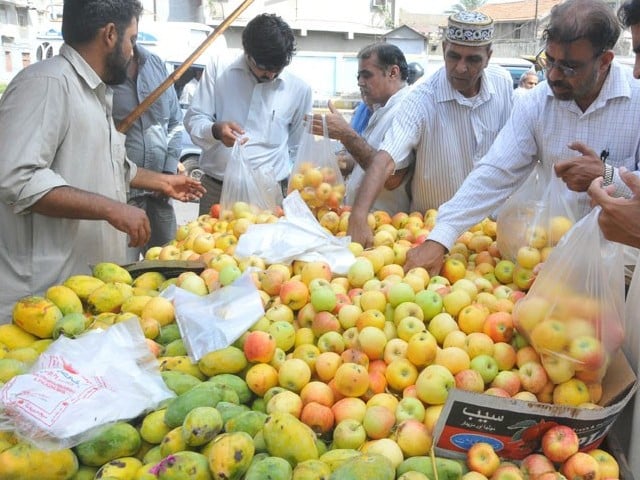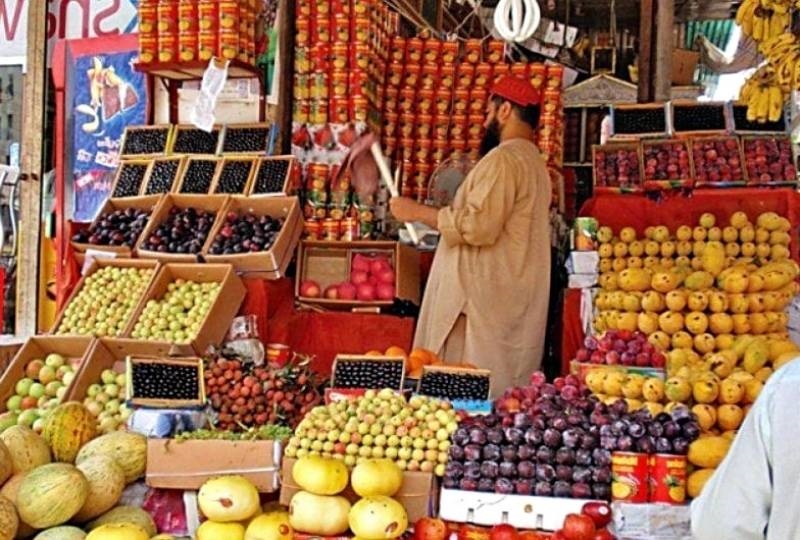By Shujauddin Qureshi
Muslims observe a holy fast from dawn to sunset and engage in acts of devotion and almsgiving during the month of Ramazan. However, because of the rising costs of necessities, Ramazan also causes a lot of hardship and worry for many Pakistanis. In this blog post, we’ll look at some of the causes and effects of the price increase during Ramazan in Pakistan as well as possible solutions.
Pakistan’s inflation rate, according to government statistics, rose to a 50-year high of 31.5% in February 2023 as a result of higher food and gasoline costs. The administration has attributed inflation to external reasons such as currency depreciation, increased oil prices, and disruptions in the world’s supply chains. Critics, however, have charged the government with poor leadership, corruption, and a lack of reforms.
When Ramazan started in March, Pakistanis had to pay even more for basic groceries like dates, fruits, vegetables, wheat, sugar, milk, and meat which are consumed more frequently during the month. Compared to the previous year, the cost of several of these items increased by as much as 50%. For instance, the price of dates, which are ingested before and after fasting, increased from Rs 350 to Rs 500 per kilogramme this year. Similarly to that, the price of flour, which is used to create bread and other foods, increased from Rs 800-1,200 last year to Rs 1,295-3,100 per 20 kg bag.
Linkage Between Ramazan and Pricehike
In Pakistan, several reasons have contributed to the price increase during Ramazan. One of them is the heightened demand for particular products during the month, which gives some dealers and retailers the chance to take advantage of the circumstances and jack up prices. Some of them stockpile or smuggle items across the border, which causes artificial shortages.
Another cause is the import limitations the government set on some products last year, particularly fresh and dry fruits, to conserve foreign exchange reserves. Although these limitations were ultimately abolished, they led to delays and interruptions in the supply chain for some imported goods, including dates from Iraq and Iran.
The loss of regional crops by last year’s floods in Sindh and Balochistan, which are significant producers of dates and other fruits and vegetables, is a third factor. More than 80% of the date crops were destroyed and other crops were also harmed, by the floods.
The price increase during Ramazan in Pakistan has a significant negative impact on the lives of millions of individuals who are already battling unemployment and poverty. To afford essentials, many people are forced to reduce their food intake or quality or borrow money. To deal with the problem, some people also turn to charitable giving or government aid.

Image: Courtesy Daily Express Tribune
The price increase during Ramazan in Pakistan also undermines the spirit and significance of the month, which is meant to be one of devotion, altruism, and cooperation. Many people are preoccupied with their financial survival and well-being rather than their spiritual development and social well-being.
Various potential remedies could lessen the price increase in Pakistan during Ramazan. One of them is for the government to take severe action against traders and merchants who disregard official price lists or quality standards by engaging in profiteering, hoarding, smuggling, and tax fraud. Through fair-price shops or utility stores, the government should also ensure appropriate distribution and supply of necessities.
To reduce inflation and stabilise the currency, the government can also make improvements to its monetary and fiscal policies. To increase productivity, competitiveness, and economic diversification, the government should also carry out structural reforms.
A third solution is for civil society and the media to raise awareness and mobilize public opinion against unfair trade practices and corruption. They should also encourage ethical consumption and social responsibility among consumers and producers.
Ramazan is a blessed month that offers many opportunities for spiritual growth and social good. However, it also poses many challenges for Pakistanis who face a severe price hike during this month. By addressing the root causes and impacts of this problem, we can hope to make Ramazan a more joyful and meaningful experience for everyone.
In conclusion, the price hike during Ramadan in Pakistan is a serious issue that affects millions of people who struggle to afford necessities. The government should take effective measures to control inflation and ensure fair pricing of essential commodities. The traders and hoarders should also act responsibly and refrain from exploiting the consumers. Consumers should also be aware of their rights and report any cases of overcharging or profiteering.
The price hike during Ramadan is not only a matter of economic injustice but also a violation of the spirit of this holy month. Ramadan is a time of generosity, compassion and solidarity, not greed, selfishness and exploitation. Let us all work together to make this Ramadan a blessed and peaceful one for everyone.
Featured Image: Courtesy Daily Times




